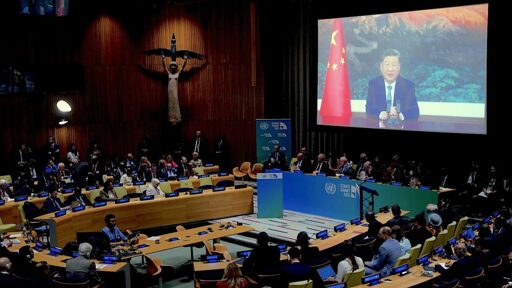COP30 in Belém may well be remembered as the moment that the world accepted the leading role of China in addressing humanity’s most important challenge.
but now the E.U. is beset by internal problems. Its primary industrial economy, Germany, is suffering from Chinese competition, and with the rise of right-wing parties, resistance has emerged to the ambitious climate policies of the European Commission. One symptom of these internal troubles was the E.U.’s embarrassing failure to agree its own mitigation targets before the informal deadline of September 30.
The United States, meanwhile, is trying to force its partner countries to buy more U.S. oil and gas.



Would Europe and North America stop buying from China and Brazil because of emissions? I bet not. It’s not just China’s and Brazil’s responsability because a huge share of their emissions are to meet demand of the exports to Europe and North America.
I don’t think the other counteies are exactly forcing China and India to produce those items. They do and want to do it very low cost and that’s where the issues come from. China and India want to benefit from the demand and at that point you’ll have to admit to a responsibility in the situation.
@jol @Sepia it’s also crazy to call out the one nation that has flat lined their CO2 emissions for the last 18 months and whose renewable exports have actually dropped emissions in developing countries. We need overproduction of renewables.
@Jason Kraus
This is misleading and incomplete information that makes it outright false.
China is set to miss its target to cut carbon intensity – the CO2 emissions per unit of GDP – from 2020 to 2025. The country would need steeper reductions to hit the it’s 2030 goal.
Emissions from the production of cement and other building materials indeed fell by 7% in the third quarter of 2025, while emissions from the metals industry fell 1%. This is due, however, not to environmental policy in Beijing, but rather to the ongoing real-estate crisis, as the construction sector uses most of the country’s steel and cement output.
Power-sector emissions were also flat year-on-year in Q3/2025, with emissions from transport fell by 5%, but oil consumption in other sectors grew by 10%, driven by chemical industry expansion. This resulted in a 2% rise in oil consumption overall. Gas demand and emissions grew by 3% overall in Q3, with consumption in the power sector up by 9% and by 2% in other sectors.
Exactly. China does deserve a lot of credit for bringing the cost of solar down. What’s funny is that the US could have been the one if it wasn’t ruled by selfish idiots.